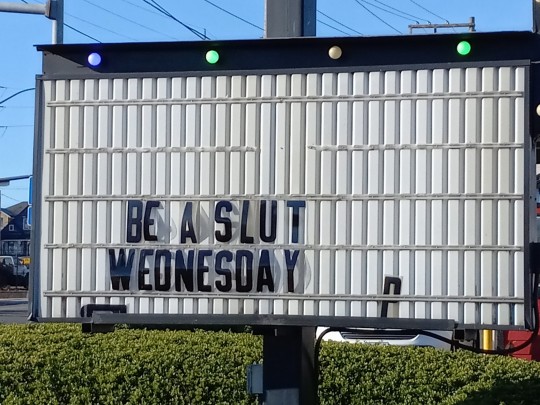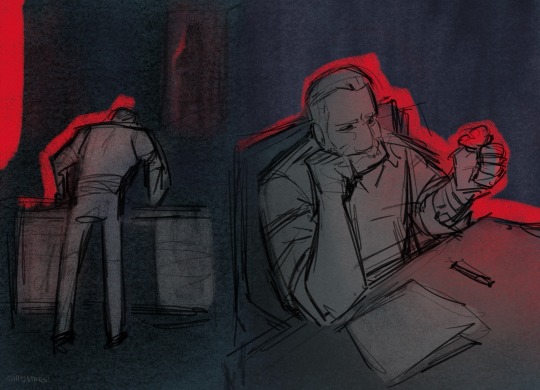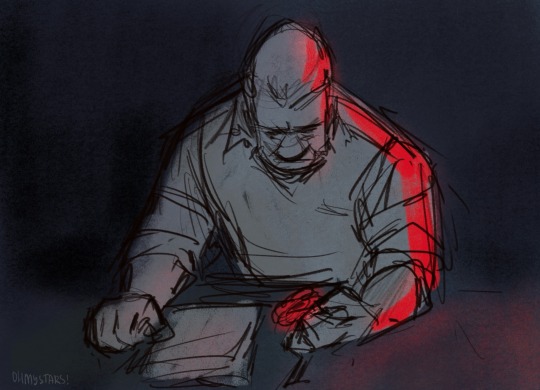Text
I stand by my pet-theory that the Fates in HADESTOWN are misnamed (on purpose)
they are the Furies
Look at how they act. They aren't just a neutral party passively shaping everyone's destinies.... oooh no. They are cruel. This trio delights in blowing madness & doubts into everyone's heads. They sow discord, pushing the people into disastrous decisions
They even get their claws into a god for some lulz (the only time Hades sings to a tune not his own ... its theirs)
3 notes
·
View notes
Text
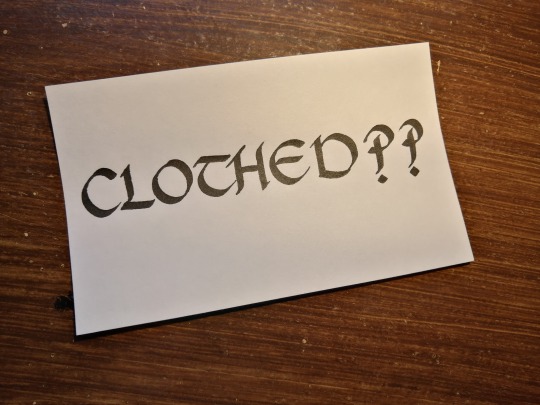
req'd by @hubris-i
boy i sure hope you are
text: clothed‽‽
150 notes
·
View notes
Note

Loving the face they put on the electricity
That’s good ol’ Mr. Ouch!
youtube
187 notes
·
View notes
Photo


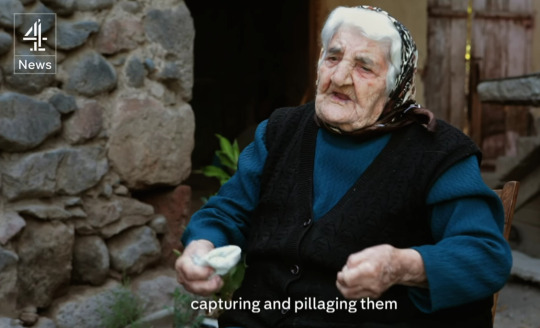



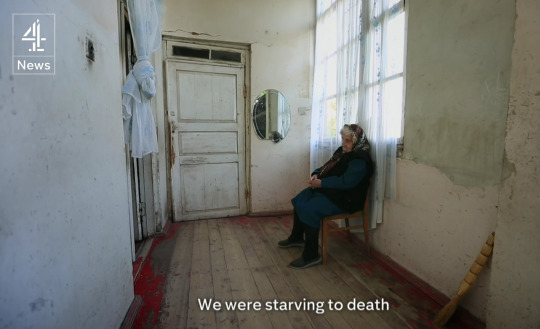


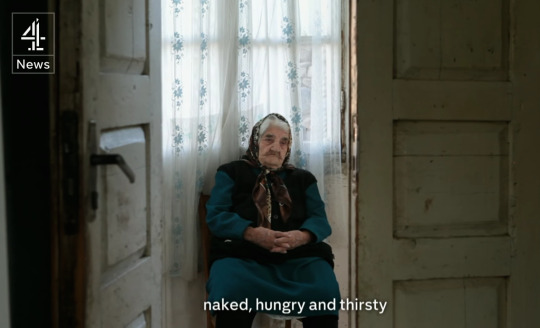
Yepraksia Gevorgyan, 110
Armenian genocide: survivors recall events 100 years on
162K notes
·
View notes
Text
Reeve Carney (with Eva Noblezada) leaving the Hadestown stage for the final time [x]
5K notes
·
View notes
Text

Transformers One isn't changing the established lore y'all because there is no established lore
1K notes
·
View notes
Text
I recently had surgery, and at the time I came home, I had both my cat and one of my grandma's cats staying with me.
- Within hours of surgery, I wake up from a nap to my cat gently sniffing at my incisions with great alarm.
- I was not allowed to shower the first day after surgery, and the cats, seeing that The Large Cat is not observing its cleaning ritual, decided I must be gravely disabled and compensated by licking all the exposed skin on my arms, face, and legs.
- I currently have to sleep with a pillow over my abdomen because my cat insists on climbing on top of me and covering my incisions with her body while I sleep (which is very sweet but not exactly comfortable without the pillow). She also lays across me facing my bedroom door, presumably on guard for attackers who may try to harm me while I'm sleeping and injured.
That's love. 🐈⬛🐈❤️
96K notes
·
View notes
Text

Smooth-headed Alligator Lizard (Gerrhonotus ophiurus), family Anguidae, Misantla, Veracruz. Mexico
Photograph by Bruno RF (@b.r.u.n.o.rf)
557 notes
·
View notes
Text
7K notes
·
View notes
Text
man barely has space for himself, and now he's gotta share it with this unlicensed robot rights activist :'C
23 notes
·
View notes
Text
The Untrustworthy Fake: Disability Tropes

[ID: A screenshot of Willy Wonka from Charlie and the Chocolate Factory as he limps towards a crowd using a cane. In the picture, he has a brown top hat in his hand, and he's wearing a suit with a purple jacket, multicoloured bow tie and cream coloured pants. Beside him is text that reads: "Disability Tropes, The untrustworthy Fake" /End ID]
Tell me if this sounds familiar: A new character is introduced into a story with some kind of disability - usually visible but not always. Maybe they're a seemingly harmless person in a wheelchair, maybe they're a one-legged beggar on the street, or maybe they're an elderly person with a cane and a slow, heavy limp. But at some point, it's revealed it's all a ruse! The old man with a cane "falls" forward and does a flawless summersault before energetically springing back up to his feet, the wheelchair user gets to their feet as soon as they think the other character's backs are turned, the one legged beggar's crutch is knocked out of his hand, only to have his other leg pop out of his loose-fitting tunic to catch him.
All of these are real examples. Maya and The Three introduces one of it's main protagonists, Ricco, by having him pretend to be missing a leg in order to con people (something that works on the protagonist, at least at first), Buffy The Vampire Slayer had the character Spike, pretend to be in a wheelchair, until the other characters leave and he gets up, revealing it's all a ruse and Charlie and the Chocolate Factory introduces Wonka by having him slowly limp out into the courtyard of the factory, only for his cane to get stuck, causing him to "fall" and jump back up, revealing that he's actually perfectly fine. Virtually every single major crime show in the past few decades has used this trope too, from CSI to The Mentalist, Castle, Law and Order and Monk all having at least one episode featuring it in some way. Even the kids media I grew up with isn't free from it; The Suite Life of Zack & Cody sees Zach faking being dyslexic after meeting someone who actually has the condition in the episode Smarter and Smarter and the SpongeBob SquarePants episode Krabs vs Plankton has Plankton fake needing a wheelchair (among other injuries) after falling in the Krusty Krab as a ploy to sue Mr Krabs and trick the court into giving him the Kraby Patty Formula.
No matter the genre or target audience though, one thing is consistent: this trope is used as a way to show someone is dishonest and not to be trusted. When the trope is used later in the story, it's often meant to be a big reveal, to shock the audience and make them mad that they've been duped, to show the characters and us what this person (usually a villain) is willing to stoop to. Revealing the ruse early on though is very often used to establish how sleazy or even how dangerous a character is and to tell the audience that they shouldn't trust them from the get go. Gene Wilde (The actor who first played Willy Wonka) even said in several interviews that this was his intent for Wonka's character. He even went so far as to tell the director of Charlie and the Chocolate Factory that he wouldn't do the film without that scene because of how strongly he felt this trope was needed to lay the foundations for Wonka's questionable intentions and motivations. His exact words are:
"...but I wouldn't have done the film if they didn't let me come out walking as a cripple and then getting my cane stuck into a cobble stone, doing a forward somersault and then bouncing up... the director said, well what do you want to do that for? and I said because from that point on, no one will know whether I'm telling the truth or lying."
There's... a lot of problems with this trope, but that quote encapsulates one of the biggest ones. whether intentionally or not, this trope ends up framing a lot of actual disabled people as deceitful, dishonest liars.
Now I can already hear you all typing, What?! Cy that's ridiculous! No one is saying real disabled people are untrustworthy or lying about their disabilities, just people who are faking!
but the thing is, the things often used in this trope as "evidence" of someone faking a disability are things real disabled people do.
A person standing up from their wheelchair or having scuff-marks on their shoes, like in the episode Miss Red from The Mentalist isn't a sign they're faking, a lot of wheelchair users can stand and even walk! They're called ambulatory wheelchair users, and they might use a wheelchair because they can't walk far, they might not feel safe walking on all terrains, they might have unstable joints that makes standing for too long risky, they might have a heart condition like POTS that has a bigger impact when they stand up or any number of other reasons. Also even non-ambulatory wheelchair users will still have scuff marks from things like transferring and bumping into things (rather hilariously, even TV Tropes calls this episode out as being "BS" in it's listing for this trope, which it refers to as Obfuscating Disability).
A blind beggar flinching or getting scared when you pull a gun on them isn't a sign they're faking their blindness like it is in Red Dead Redemption 2. Plenty of blind people can still see a little bit, it might only be a general sense of light and darkness, it might be exceptionally blurry or just the fuzzy outlines of shapes, or they might only be able to see something directly in front of them, all of which might still be enough to cue the person into what's happening in a situation like that. Even if it's not, the sound of you pulling your gun out or other people nearby freaking out and making noise probably would tip them off.
A person needing a cane or similar mobility aid sometimes, but being able to go without briefly or do even "big movements" like Wonka's rolling somersault, doesn't mean they don't need it at all. Just like with wheelchairs, there's a lot of disabilities that require canes and similar aids some days, and not others. Some disabilities even allow people those big, often straining movements on occasion, or allow them to move without the aid for short periods of time, but not for long. Some people's disability's might even require a mobility aid like a cane as a backup, just in case something goes wrong, but that still means you need to carry it around with you, and unless it can fold down, it's easier to just use it.
Disability is a spectrum, and a lot of disabilities vary in severity and what is required of the people who have them day to day. This trope, however, helps to perpetuate the idea that someone who does any of these things (and many others) is faking, which can actively make the lives of disabled people harder and can even put them in very real danger, physically, mentally and even financially.
Just ask any ambulatory wheelchair user about how many times they've been yelled at for using accommodations they need, like disabled toilets or parking spaces. How many times they've been accused of faking and even filmed without their consent because they stood up in public, even if it was to do something like get their wheelchair unstuck or as simple as them standing to briefly reach something on a high shelf. I've caught multiple people filming me before, so have my friends and family, and it's honestly scary not knowing where those images have ended up. This doesn't just impact the person either, a friend of mine was filmed while standing up to get his daughter (who was about 4 at the time) out of the car. He was lucky to have stumbled across the video a few days later on facebook and contacted the group admins where it was posted to get it taken down, but had he not stumbled across it by chance, pictures with his home address and his car's number plate, his child's face and his face all visible would have just been floating around, all because a woman saw him stand briefly to pick up his daughter.
Many people don't stop at just saying a nasty comment or taking a photo though, a lot of people, when they suspect people are faking, will get violent. I have many friends who have been pushed, slapped in the face, spat on or had their mobility devices kicked out from under them. I've even been in a few situations myself where, had I not had people with me, I think the situation would have turned violent.
There's even been cases where those photos and videos I've mentioned before have been used against real disabled people and they've been reported to their country's welfare system as committing disability fraud. While cases like this are usually resolved *relatively* quickly, in many parts of the world, their payment will be halted while the investigation is in process, meaning they may be without any income at all because of someone else's ignorance. If you're already struggling to make ends meet (which, if you're only living off one of those payments, you probably will be), a few weeks without pay can mean the difference between having a home and being on the streets.
Not to mention that when there's so many stories about people faking a disability in the media, especially when the character is doing it to get some kind of "advantage", such as getting accommodations or some kind of disability benefit, it perpetuates the idea that people are rorting the systems put in place to help disabled people. If this idea becomes prevalent enough, the people in charge start making it harder for the people who need them to access those systems, which more often than not results in disabled people not even being able to access the very systems that are supposed to be helping them. A very, very common example of this is in education where accommodations for things like learning disabilities require you to jump through a ridiculous number of hoops, especially at higher levels, only to have some teachers and professors refuse to adhere to the adaptations anyway because they're convinced the student (and usually disabled students as a whole) is faking.
Yes, the "untrustworthy faker" is a fictional trope, and yes, it does occasionally happen in real life, but not as often as media (including things like news outlets) would have you believe. However, when the media we consume is priming people to look for signs that a disabled person is faking, it has a real impact on real disabled people's lives. "Fake-claiming" is a massive problem for people in pretty much all parts of the disabled community, and it ranges from being just annoying (e.g. such as people spamming and fake-claiming blind people online with "if you were really blind, how do you see the screen" comments) to the more serious cases I mentioned above. It's for this reason a lot of folks in the disabled community ask that people leave this trope out of their works.
338 notes
·
View notes
